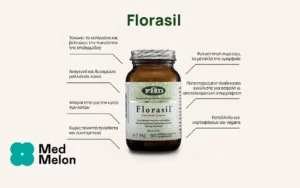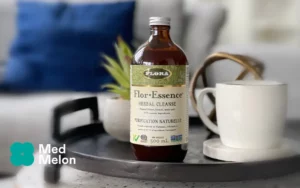Natural Sources of Vitamin C: Acerola cherry (Malpighia punicifolia L. or M. glabra L. [Fam. Malpighiaceae]); rosehips (Rosa spp. [Fam. Rosaceae]); berries, fruit and vegetables of many types.
Forms:
Standardized Vitamin C chewables and tablets; Acerola cherry juice; acerola cherry extracts.
Therapeutic Uses:
– Aging Disorders
– Allergies
– Antinflammatory
– Antioxidant
– Asthma
– Bone and Joint Disorders
– Bronchitis
– Cataracts
– Cellular Regeneration
– Cleansing
– Colds
– Detoxification
– Emphysema
– Glaucoma
– Gum Disease
– HIV Infection
– Immune System
– Infections
– Infertility
– Lowering LDL Cholesterol
– Macular Degeneration
– Male Health Maintenance
– Respiratory Health Maintenance
– Scurvy
– Tonsillitis
– Vascular Disorders
Overview:
Vitamin C occurs abundantly in many different fruits and vegetables, including in the fruit of the acerola cherry tree, one of the richest known natural sources of vitamin C. According to Jean Carper in her book, Stop Aging Now, vit. C is the best vitamin for longevity. The Recommended Daily Allowance (RDA) for vit. C is only 60 milligrams, however Dr. Linus Pauling, two-time Nobel Prize-winning scientist, claimed that, “We could add an extra twelve to eighteen years to our lives by taking from 3,200 to 12,000 milligrams of vit. C a day.” Alarmingly, one out of every four Americans do not even get the bare minimum RDA for vit. C needed to perform basic cellular functions. In one study, 70% of ailing elderly people had white blood cells deficient in vit. C. The free radical scavenging benefits of vit. C are extremely powerful for preventing abnormal growths and fighting cellular aging. People who take the most vitamin C are only half as likely as low vitamin C eaters to develop cancer – especially of the stomach, esophagus, pancreas and mouth (oral cavity). Getting a modest amount of vit. C daily also: boosts good HDL cholesterol; reduces bad-type LDL cholesterol that damages arteries; reduces high blood pressure; strengthens blood vessel walls; makes blood less sticky; and stops changes leading to clogged arteries. According to human studies, “A thirty-five-year-old man who eats vit. C-rich foods and takes vit. C supplements will slash his chances of heart disease death by two-thirds and live 6.3 years longer,” predicts Dr. James Enstrom, UCLA researcher. Other uses of vitamin C include: boosting immunity for fighting infections and preventing lung disease, gum disease and cataracts. Dr. Duke in The Green Pharmacy recommends vit. C for: allergies, arthritis, asthma, bronchitis, colds, emphysema, glaucoma, HIV infection, infertility and tonsillitis.
Chemistry:
Vitamin C (ascorbic acid) occurs abundantly in many different fruits and vegetables, including in the fruit of the Acerola Cherry tree, Malpighia punicifolia L. or M. glabra L. [Fam. Malpighiaceae], one of the richest known natural sources of vitamin C that can contain up to 4000 mg Vitamin C per gram of fresh weight (acerola cherries can be up to 4.5% Vit. C compared to 1.7% in rosehips and only 0.05% in a peeled orange). Other rich sources of natural vit. C include: cashew fruits (fruit pulp not nut); and kiwi fruit.
Suggested Amount:
The Recommended Daily Allowance (RDA) for vitamin C is 60 milligrams. Dr. Linus Pauling, two-time Nobel Prize-winning scientist, claimed that “We could add an extra twelve to eighteen years to our lives by taking from 3,200 to 12,000 milligrams of vitamin C a day.” Other prominent Vit. C researchers take between 2,000 to 3,000 milligrams of vit. C daily. Taking 600 milligrams of vit. C or more daily has made blood less sticky, thus less apt to form clots. To improve sperm health and fertility in men, it is recommended to take at least 200mg of vitamin C daily. Jean Carper recommends taking 250 to 1,000 milligrams daily to combat the average ravages of aging. It is highly recommended to eat at least five servings of fruits and vegetables every day, and to additionally take a Vit. C supplement just to be safe. According to Jean Carper, foods high in vit. C include: sweet peppers, cantaloupe, pimientos, papaya, strawberries, Brussels sprouts, citrus fruits and juices, kiwi fruit, broccoli, tomatoes and tomato juice.
Drug Interactions:
None known.
Contraindications:
Vitamin C can exacerbate iron toxicity in persons suffering from the genetic disorder called hemochromatosis. Such persons should consult a physician before taking vit. C supplements.
Side Effects:
Excessive vitamin C can cause diarrhea, nausea and heartburn in some people however, it is considered to be very safe in high dosages. No serious side effects were reported in eight recent studies from taking up to 10,000 milligrams of vit. C daily for several years. According to Jean Carper in Stop Aging Now, there is no evidence that vit. C causes kidney stones.
References:
Block, G. 1991. Vitamin C and cancer prevention: the epidemiological evidence. American J of Clinical Nutrition 1991, 53: 270S-282S.
Carper, J. 1995. Stop Aging Now. HarperCollins Publishers, 10 East 53rd Street, New York, New York 10022-5299. Pp. 49-58.
Duke, J. 1997: The Green Pharmacy, The Ultimate Compendium of Natural Remedies from the World’s Foremost Authority on Healing and Herbs. Pp. 41-42; 75; 82; 120-121; 156; 161; 167-168; 222; 267-268; 331; 340; 513. Rodale Press.
Enstrom, J.E. 1992. Vitamin C intake and mortality among a sample of the United States population. Epidemiology 1992, 3: 194-202.
Feldman, E.B. 1992. Ascorbic acid supplements and blood pressure – a four week pilot study. Annals of the New York Academy of Sciences 1992, 669: 342-348.
Additional Information:
None.




